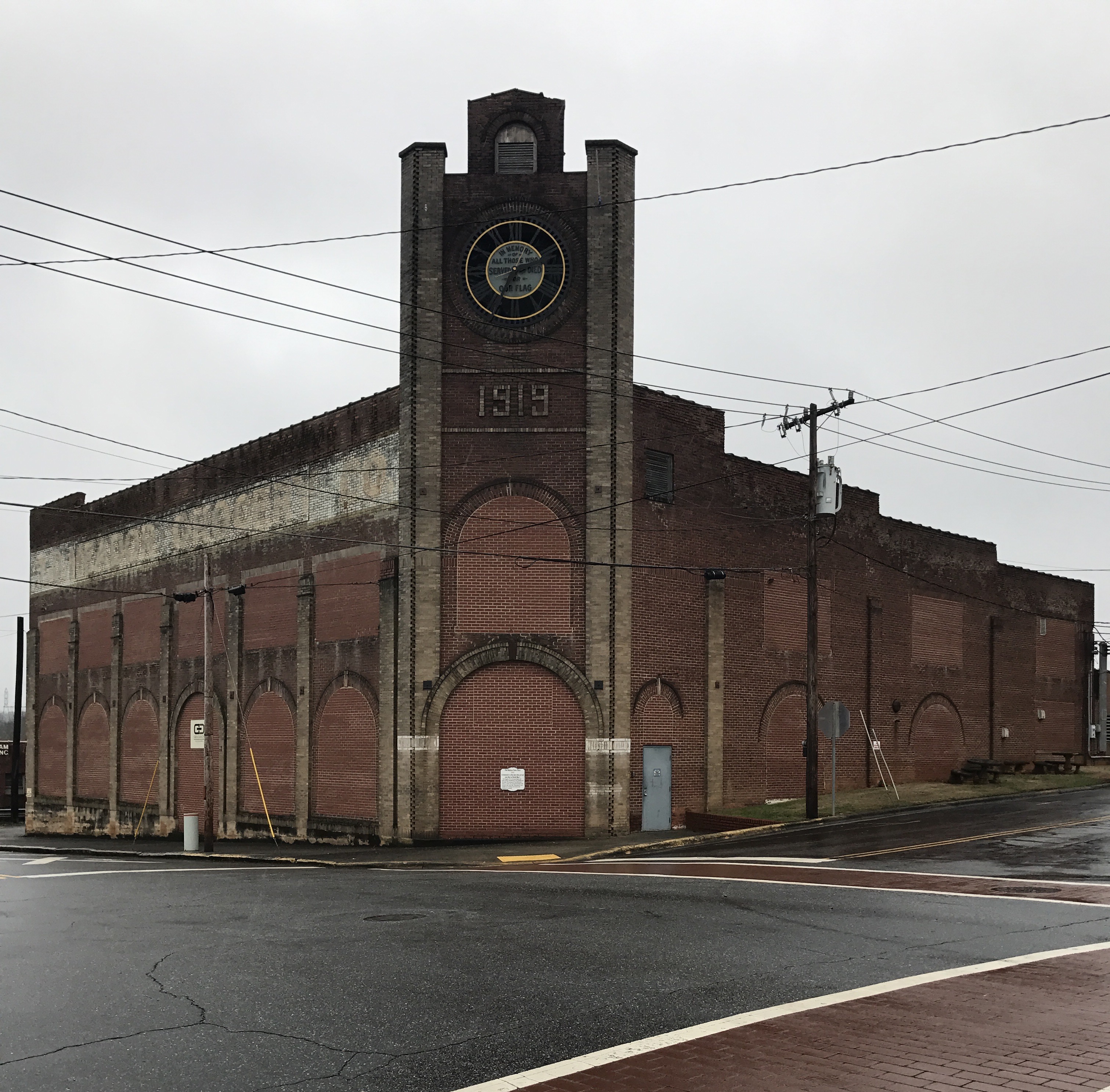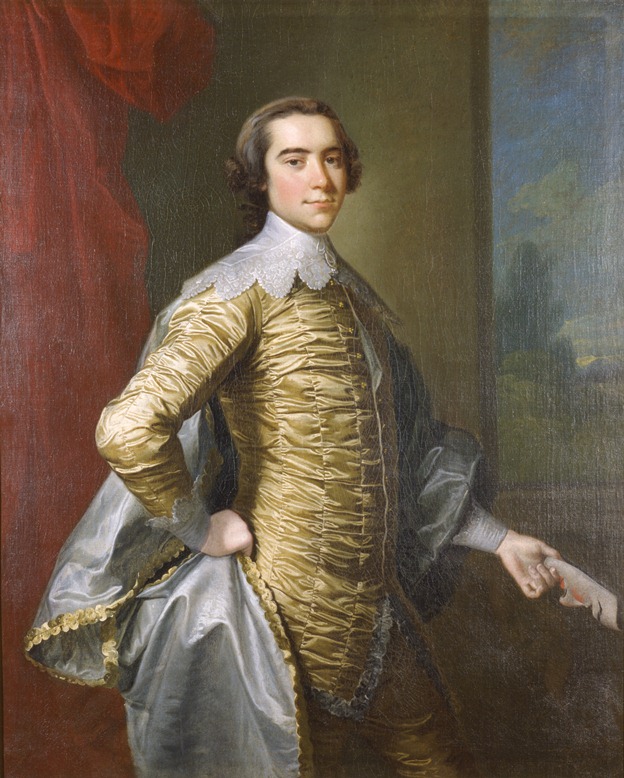|
J. P. Carter
James Pratt Carter (August 20, 1915 – December 19, 2000) was an American military officer, politician, and educator. During his career in the United States Army, he served in World War II and the Korean War, retiring from the army in 1958 with the rank of lieutenant colonel. He was the mayor of Madison, North Carolina for twelve years and later served on the town's Board of Aldermen. Early life Carter was born on August 20, 1915, in Rockingham County, North Carolina, to Yancey Ligon Carter and Mary Elizabeth Morton, who were prominent tobacco farmers in the Bethany community. He was the thirteenth of fifteen children. Carter was raised in the Baptist tradition. His grandfather, Pleasant Jiles Carter, was a North Carolinian planter. Carter's great-grandfather, Thomas B. Carter, owned a large tobacco plantation in what is now Wentworth. His family descends from the colonist Reverend Thomas Carter, a Puritan minister in the Massachusetts Bay Colony and signer of the Dedham Cov ... [...More Info...] [...Related Items...] OR: [Wikipedia] [Google] [Baidu] |
Madison, North Carolina
Madison is a town located in Rockingham County, North Carolina. At the 2020 census, the town had a total population of 2,132. Madison is part of the Greensboro-High Point Metropolitan Statistical Area of the Piedmont Triad metro region. It was home to the corporate headquarters of Remington Arms until 2020, when the company was made defunct by bankruptcy proceedings. It is still home to Marlin Firearms, which was an asset of Remington now owned by Sturm, Ruger & Co. History In 1940 artist Jean Watson painted the mural, ''Early Summer in North Carolina'', in the town's post office as a project commissioned by the Works Progress Administration. The Academy Street Historic District, The Boxwoods, Cross Rock Rapid Sluice, Fewell-Reynolds House, Gravel Shoals Sluice, Jacob's Creek Landing, Mayo River Sluice, Roberson's Fish Trap Shoal Sluice, Alfred Moore Scales Law Office, and Slink Shoal Sluice and Wing Dams are listed on the National Register of Historic Places. The Boxley House ... [...More Info...] [...Related Items...] OR: [Wikipedia] [Google] [Baidu] |
Salem, Massachusetts
Salem ( ) is a historic coastal city in Essex County, Massachusetts, located on the North Shore of Greater Boston. Continuous settlement by Europeans began in 1626 with English colonists. Salem would become one of the most significant seaports trading commodities in early American history. It is a suburb of Boston. Today Salem is a residential and tourist area that is home to the House of Seven Gables, Salem State University, Pioneer Village, the Salem Maritime National Historic Site, Salem Willows Park, and the Peabody Essex Museum. It features historic residential neighborhoods in the Federal Street District and the Charter Street Historic District.Peabody Essex announces $650 million campaign WickedLocal.com, November 14, 2011 [...More Info...] [...Related Items...] OR: [Wikipedia] [Google] [Baidu] |
Dedham Covenant
The Dedham Covenant was a covenant that governed the early settlement of Dedham, Massachusetts. It mandated that only those with similar, Puritan, community values could live in the town and set about a method for mediating disputes. It also required each resident to pay their fair share of taxes for the common good. Eventually 125 men would sign the covenant. Background In 1635 there were rumors in the Massachusetts Bay Colony that a war with the local Indians was impending and a fear arose that the few, small, coastal communities that existed were in danger of attack. This, in addition to the belief that the few towns that did exist were too close together, prompted the Massachusetts General Court to establish two new inland communities, Dedham and Concord. As Puritans, the first settlers came to Massachusetts in order to live and worship as they pleased. While they were subject to the General Court, they had wide latitude to establish a local government as they saw fit. The fi ... [...More Info...] [...Related Items...] OR: [Wikipedia] [Google] [Baidu] |
Massachusetts Bay Colony
The Massachusetts Bay Colony (1630–1691), more formally the Colony of Massachusetts Bay, was an English settlement on the east coast of North America around the Massachusetts Bay, the northernmost of the several colonies later reorganized as the ''Province of Massachusetts Bay''. The lands of the settlement were in southern New England, with initial settlements on two natural harbors and surrounding land about apart—the areas around Salem and Boston, north of the previously established Plymouth Colony. The territory nominally administered by the Massachusetts Bay Colony covered much of central New England, including portions of Massachusetts, Maine, New Hampshire, and Connecticut. The Massachusetts Bay Colony was founded by the owners of the Massachusetts Bay Company, including investors in the failed Dorchester Company, which had established a short-lived settlement on Cape Ann in 1623. The colony began in 1628 and was the company's second attempt at colonization. It was su ... [...More Info...] [...Related Items...] OR: [Wikipedia] [Google] [Baidu] |
Puritan
The Puritans were English Protestants in the 16th and 17th centuries who sought to purify the Church of England of Catholic Church, Roman Catholic practices, maintaining that the Church of England had not been fully reformed and should become more Protestant. Puritanism played a significant role in English history, especially during the Protectorate. Puritans were dissatisfied with the limited extent of the English Reformation and with the Church of England's toleration of certain practices associated with the Roman Catholic Church. They formed and identified with various religious groups advocating greater purity of worship and doctrine, as well as personal and corporate piety. Puritans adopted a Reformed theology, and in that sense they were Calvinists (as were many of their earlier opponents). In church polity, some advocated separation from all other established Christian denominations in favour of autonomous gathered churches. These English Dissenters, Separatist and Indepe ... [...More Info...] [...Related Items...] OR: [Wikipedia] [Google] [Baidu] |
Thomas Carter (minister)
Thomas Carter (1608 – 5 September 1684) was an American colonist and Puritan minister. Educated at Cambridge, he left England and emigrated to the American colonies during the Puritan Great Migration. Carter was ordained as a Puritan minister in 1642, becoming the first person in the American colonies to receive a Christian ordination. He served as a church elder and minister in Dedham, Watertown, and Woburn. A prominent religious figure in the Massachusetts Bay Colony, Carter was one signers of the Dedham Covenant and one of the founders of Woburn. Early life and family Carter was born in Hinderclay, Suffolk, England, and baptized there on 3 July 1608. His father, James Carter, was a yeoman. He had an older brother, James, baptized 14 June 1603, and an older sister, Mary, baptized 25 March 1605 or 1606. He studied at St John's College, Cambridge, receiving his B.A. in 1630 and his M.A. in 1633. Carter was a student at Cambridge at the same time as John Harvard. Like Har ... [...More Info...] [...Related Items...] OR: [Wikipedia] [Google] [Baidu] |
Log Cabins In Wentworth, North Carolina LCCN2011631095
Log most often refers to: * Trunk (botany), the stem and main wooden axis of a tree, called logs when cut ** Logging, cutting down trees for logs ** Firewood, logs used for fuel ** Lumber or timber, converted from wood logs * Logarithm, in mathematics Log, LOG or LoG may also refer to: Arts, entertainment and media * ''Log'' (magazine), an architectural magazine * ''The Log'', a boating and fishing newspaper published by the Duncan McIntosh Company * Lamb of God (band) or LoG, an American metal band * The Log, an electric guitar by Les Paul * Log, a fictional product in ''The Ren & Stimpy Show'' * The League of Gentlemen or LoG, a British comedy show. Places * Log, Russia, the name of several places * Log, Slovenia, the name of several places Science and mathematics *Logarithm, a mathematical function * Log file, a computer file in which events are recorded * Laplacian of Gaussian or LoG, an algorithm used in digital image processing Other uses * Logbook, or log, a record ... [...More Info...] [...Related Items...] OR: [Wikipedia] [Google] [Baidu] |
Wentworth, North Carolina
Wentworth is a town in Rockingham County, North Carolina, United States. The population was 2,646 at the 2020 census. Wentworth is the county seat of Rockingham County and is part of the Greensboro–High Point metropolitan area of the Piedmont Triad. Geography The town has a total area of 14.4 square miles (37 km), of which, 14.3 square miles (37 km) of it is land and 0.49% or 0.1 square miles (0.26 km) of it is water. Demographics 2020 census As of the 2020 United States census, there were 2,662 people, 953 households, and 691 families residing in the town. 2010 census As of the 2010 U.S. Census, there were 2,807 people and 784 families residing in the town. The population density was 194.3 people per square mile (75.0/km). The racial makeup of the town was 80.89% Caucasian, 16.91% African American, 0.40% Native American, 0.32% Asian, 0.68% from other races, and 0.79% from two or more races. Hispanic or Latino of any race were 1.33% of the population. [...More Info...] [...Related Items...] OR: [Wikipedia] [Google] [Baidu] |
Carter Plantation (Wentworth, North Carolina)
The Carter Plantation was a tobacco plantation in Wentworth, North Carolina. The plantation was founded by Thomas Carter III, a descendant of American colonist and Puritan minister Rev. Thomas Carter, who received a land grant for three-hundred acres in Rockingham County when he settled in North Carolina after leaving Massachusetts in the late 18th century. The original house, a large Federal style dwelling, was vacated in 1930 and was destroyed shortly after. What remains of the plantation, including two log houses, a tenant farmer's cabin, and a cemetery for family members and enslaved persons, is located off of North Carolina Highway 65. History The Carter family of Wentworth descends from the colonist Rev. Thomas Carter, who served as a Puritan minister in the Massachusetts Bay Colony, through his son, Rev. Samuel Carter. Thomas Carter's great-great grandson, Thomas Carter III (1745-1817), moved to North Carolina from Massachusetts around 1782 and received a land grant fo ... [...More Info...] [...Related Items...] OR: [Wikipedia] [Google] [Baidu] |
Planter Class
The planter class, known alternatively in the United States as the Southern aristocracy, was a racial and socioeconomic caste of pan-American society that dominated 17th and 18th century agricultural markets. The Atlantic slave trade permitted planters access to inexpensive African slave labor for the planting and harvesting of crops such as tobacco, cotton, indigo, coffee, tea, cocoa, sugarcane, sisal, oil seeds, oil palms, hemp, rubber trees, and fruits. Planters were considered part of the American gentry. In the Southern United States, planters maintained a distinct culture, which was characterized by its similarity to the manners and customs of the British nobility and gentry. The culture had an emphasis on chivalry, gentility, and hospitality. The culture of the Southern United States, with its landed plantocracy, was distinctly different from areas north of the Mason–Dixon line and west of the Appalachian Mountains. The northern and western areas were characterized by s ... [...More Info...] [...Related Items...] OR: [Wikipedia] [Google] [Baidu] |
Baptist
Baptists form a major branch of Protestantism distinguished by baptizing professing Christian believers only (believer's baptism), and doing so by complete immersion. Baptist churches also generally subscribe to the doctrines of soul competency (the responsibility and accountability of every person before God), ''sola fide'' (salvation by just faith alone), ''sola scriptura'' (scripture alone as the rule of faith and practice) and congregationalist church government. Baptists generally recognize two ordinances: baptism and communion. Diverse from their beginning, those identifying as Baptists today differ widely from one another in what they believe, how they worship, their attitudes toward other Christians, and their understanding of what is important in Christian discipleship. For example, Baptist theology may include Arminian or Calvinist beliefs with various sub-groups holding different or competing positions, while others allow for diversity in this matter within the ... [...More Info...] [...Related Items...] OR: [Wikipedia] [Google] [Baidu] |





